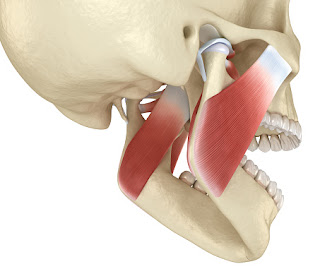Dealing with Arthritis in the Jaw
Pain in the jaw joint could be the result of TMJ, or temporomandibular joint syndrome. Here's everything you need to know about this confusing condition, including home treatment options that can help ease symptoms.
It’s common for kids with juvenile idiopathic arthritis (JIA) to have arthritis in their temporomandibular joint (TMJ), or jaw. Pediatric rheumatologists often check their patients’ jaws because symptoms can be silent or mild at first
TMJ flare up don’t just affect mouth, they also make entire upper body ache. Face will feel incredibly sore, as if been grinning all day, Eyes will feel so tired that it’s hard to keep them open. It's challenging to use the computer or read books because the postures aggravate the neck which is also affected by JA and shoulders. Muscles are knotted and irritated. Teeth often ache as if I have an infection, and this usually happens in the middle of the night. Not to mention the typical fatigue and soreness that come with a flare.
Your child’s rheumatologist and dentist should create a plan to treat your child’s TMJ arthritis. Your child may need splints or braces as they grow. They may also need steroid injections if the inflammation is severe or prolonged. Your child might need an extra soft pillow to sleep comfortably if their jaw is flaring.
Just like with any other arthritic joint, heat and cold packs can be helpful. It’s a little tricky to keep them on though. Having your child lie on their side is usually the best way to go about it, though the pressure might be too much for them. Like with other joints, sometimes your child’s jaw will be flaring, and at other times it’s not as troublesome. You never know what JA will bring each day, but we hope that tomorrow will be better.



Comments
Post a Comment